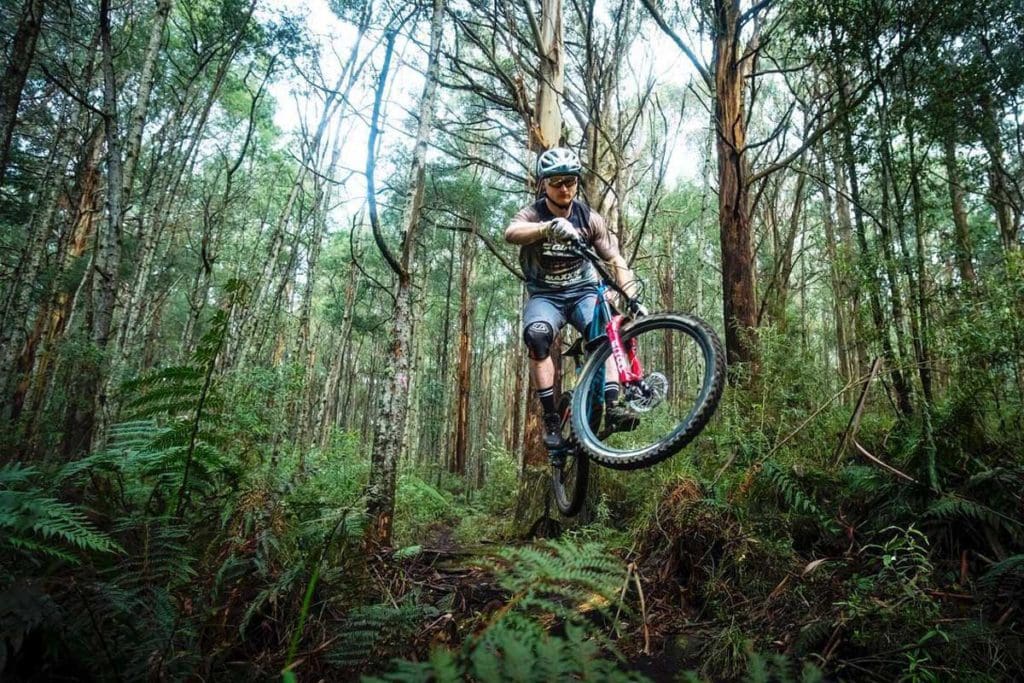Bicycle Queensland Takes Formal Stance on National Park Trails

Bicycle Queensland has released a ‘position statement’ supporting the further development of sustainable mountain bike trails in National Parks.
The cycling advocacy group’s CEO, Rebecca Randazzo, said access to locations such as National Parks was central to the growth of mountain biking but it would need to be done in collaboration with agencies to ensure sustainable trail development.
In Queensland, mountain biking is recognised as a legitimate recreational activity that can occur in Queensland National Parks, with trails established in many parks throughout the State.
The Wangetti Trail is set to become Queensland’s first purpose-built walking and mountain bike track in a National Park and is being positioned as one of Australia’s leading adventure-based tourism experiences.
The statement also comes as Yarra Ranges Council awaits a decision from the Victorian Minister for Planning, Richard Wynne, on a proposal to build a mountain bike destination at Warburton. It is the first mountain bike facility in Victoria to require a full environmental impact statement and has undergone an extended public hearing process. A response from the Minister was expected last month but no update has been provided yet.
BQ’s position statement says the organisation acknowledges that “with increasing demand comes challenges for all stakeholders to provide for not only the needs and demands of mountain biking but for all recreational users”.
“Balancing conservation, cultural values and recreational demand, funding, and resourcing maintenance of new and existing trail networks is crucial but achievable,” it says.
Rebecca said riding in nature would give mountain bikers a greater appreciation of the environment and the need to protect it.
“Bicycle Queensland believes that the key to unlocking the benefits of mountain biking is access to land on which to build sustainable trail networks,” Rebecca said.
“This will need the collaboration of the mountain bike community, First Nations people, State and Local Government agencies, coupled with the development of a robust environmental framework which would guide the planning and construction of sustainable trail networks in National Parks and many other land management tenures.
“A diverse range of people are discovering the freedom and connection to nature mountain biking offers.
“Mountain bikers have a strong appreciation for nature, and riding in natural areas has caused them to change their behaviour to take better care of the environment.
“Bicycle Queensland already collaborates with local trail care and mountain biking community groups, especially in south-east Queensland.”
Gold Coast recycling hub
Bicycle Queensland has also thrown its weight behind a Gold Coast Council proposal to establish a cycling/recycling hub.
The council’s Water and Waste team this week held the first public discussions on the idea, with Bicycle Queensland Director of Advocacy Andrew Demack present to provide support.
Bike retailers and manufacturers were also at the industry and community forums, along with community bike repair groups and Men’s Shed members.
Andrew said: “We are enthusiastically supporting this project and hope to see it move from concept to pilot as soon as possible.
“I am sure that there are local groups in Brisbane and all the major regional cities which would love to see councils engage in proactively promoting a circular economy approach to the bike industry and many other industries.”
He said bikes are well-suited to be ahead of the curve on this “because the bike riding community is already very engaged on sustainability and recycling”.
“Wouldn’t it be great if regular bike riders had somewhere local that they could drop off for recycling those consumable items of bike riding, such as tyres, tubes and chains?” he added.
“Wouldn’t it be great if there was a central location for people who are interested in low-cost bike riding to access second-hand parts, especially those items such as cranks, saddles, seat posts, and wheels which often have a useful life long after they are no longer the latest and greatest.
“Wouldn’t it be great if there was somewhere for mums and dads to be able to donate children’s bikes and even adults’ bikes which are no longer needed but still have plenty of useful life ahead of them?
“Wouldn’t it be great if there was a central training location in our largest regional city for bicycle shops to send trainee mechanics, which also had the side benefit of fixing up low-cost donated bikes to go to worthy recipients?”
